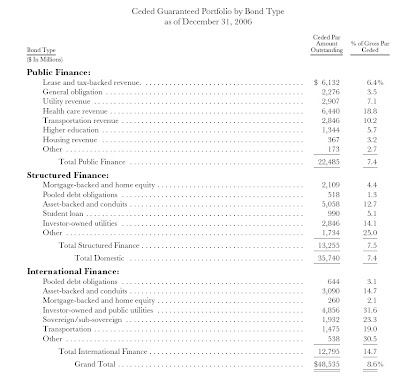Berkshire Hathaway Enters the Bond Insurance Market
UPDATE: According to this news article , Berkshire Hathaway Assurance will be capitalized with $105 million, with more depending on business performance. If we go with a typical 100-to-1 par insurance value (Berkshire Hathaway Assurance may use a slightly lower value while charging a higher price), then it will be insuring around $10 billion. That's very small (Ambac's public finance total par value exposure is $300 billion, with Ambac writing around $20 billion of new insurance per year). So the Berkshire entrance won't be a giant gorrilla entering the industry; it will be more of a nimble start-up, likely working its way to bigger things. UPDATE 2 : A couple of interviews with Buffett by Fox News regarding his bond insurance move (Thanks to Reflections on Value Investing for the original mention). Well, I have commented on the possibility before and it finally happened: Warren Buffett's Berkshire Hathaway is setting a bond insurance unit , Berkshire Hathaway Assuran


